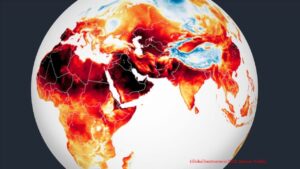
Date: Tuesday, 21 May 2024; 21st Anniversary.
Sponsor: United Nations
Objectives:
World Day for Cultural Diversity for Dialogue and Development is annually celebrated on May 21 for the following purposes:
- to raise public awareness of the value and importance of cultural diversity,
- to encourage knowledge of the positive value of cultural diversity,
- to help integrate culture into the frameworks of sustainable development, and
- to respect and promote human rights and fundamental freedom.
Inception:
The first World Day for Cultural Diversity for Dialogue and Development was officially held around the world on 21 May 2003.
History:
In 1998, the Intergovernmental Conference on Cultural Policies for Development, organized by the United Nations Educational, Scientific and Cultural Organization (UNESCO), was held in Stockholm from 30 March to 2 April 1998.
On 2 November 2001, at its thirty-first session, the General Conference of UNESCO adopted the Universal Declaration on Cultural Diversity, recognizing the need to “enhance the potential of culture as a means of achieving prosperity, sustainable development, and global peaceful coexistence.”
On 21 November 2001, the United Nations General Assembly adopted its resolution A/RES/56/8 proclaiming 2002 as the United Nations Year for Cultural Heritage.
On 20 December 2002, the United Nations General Assembly declared May 21 to be the “World Day for Cultural Diversity for Dialogue and Development”, in the resolution A/RES/57/249.
In December 2015, the UN General Assembly adopted the resolution on Culture and Sustainable Development (A/C.2/70/L.59), reaffirming cultural diversity’s contribution to the three dimensions (economic, social, and environmental) of sustainable development.
Why do we mark cultural diversity?
- Three-quarters of the world’s major conflicts have a cultural dimension to them. Therefore, bridging the gap between cultures is essential for peace and stability.
- Cultural diversity is a driving force of development, not only for economic growth but also as a means of leading a more fulfilling holistic life.
- Cultural diversity is an asset that is indispensable for poverty reduction and the achievement of sustainable development. Bridging culture gaps can help to eradicate poverty.
- Recognition of cultural diversity is conducive to dialogue among civilizations and cultures, respect, and mutual understanding.
- Embracing cultural diversity helps promote human rights and fundamental freedom and improves many sectors of our lives, including education, science, health, and the environment.
- The cultural sector accounts for 3.1% of global GDP and 6.2% of all employment.
Why do we mark the World Day for Cultural Diversity for Dialogue and Development?
- The Day provides us with an opportunity to appreciate the cultural diversities between different countries, states, and people in the world,
- The Day provides us with an opportunity to deepen our understanding of the values of cultural diversity and to advance sustainable development goals.
- The Day is an opportunity to help communities understand the value of cultural diversity and learn how to live together in harmony.
- The Day helps to enhance the potential of culture as a means of achieving prosperity, sustainable development, and global peaceful coexistence.
Official website:
https://www.un.org/en/observances/cultural-diversity-day






Leave a Reply